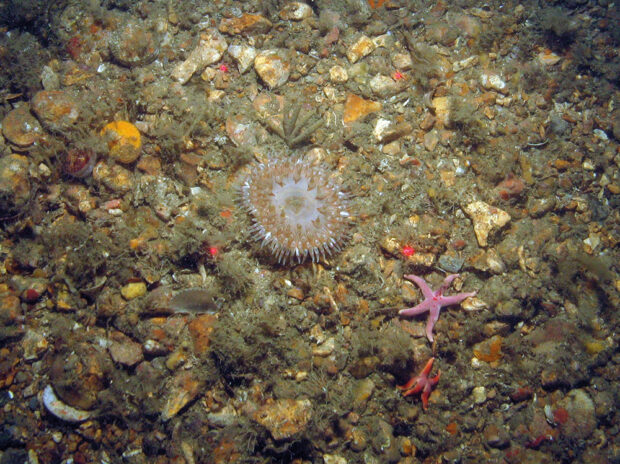
This week, Defra announced that the first three Highly Protected Marine Areas (HPMAs) in English waters had come into force from Wednesday 5 July. The three sites are Allonby Bay (Irish Sea), Dolphin Head (Eastern Channel) and North East of Farnes Deep (Northern North Sea).
The announcement attracted interest from a range of national, regional and trade media who covered the story about the highest levels of protections that are now in place and how they will benefit the marine ecosystem as well as species and habits at the designated sites.
BBC Radio Cumbria and ITV Border were amongst those who covered the announcement, focusing on their regional site located in Cumbria, Allonby Bay, and what the new protections will mean for wildlife found at the site – including shorebirds such as curlews and oystercatchers – which are attracted to the unique habitats found there. Some of these include ‘blue carbon’ habitats which can help to tackle climate change by capturing and storing carbon.
Coverage was also seen nationally on BBC Online highlighting the reasons for designating the three sites being for ecological importance of nature recovery, as well as their social and economic impacts. The piece touched on the Scottish government’s recent decision to scrap plans to create HPMAs in 10% of their seas, after criticism following concerns from the fishing industry and island communities.
HPMAs will help protect some of our most precious marine species and habitats such as honeycomb worm reefs, northern gannets and harbour porpoises, improving the health of our ocean for generations to come.
These sites contribute towards achieving some of the UK government’s ambitious marine conservation targets and commitments to protecting our blue planet – set out in the Environmental Improvement Plan and 25 Year Environment Plan.
Marine Minister Lord Benyon said:
Highly protected marine areas are a crucial part of marine protection measures. Today is a significant milestone for the UK as we ramp up action to recover our important marine ecosystems, and make sure species and habitats can thrive in healthy, diverse environments. This is a first step with more announcements to come.
Tony Juniper, Chair of Natural England, said:
These Highly Protected Marine Areas will help boost the long-term sustainability of these areas of ocean, helping to soften some impacts of climate change while aiding the recovery of marine ecosystems and the fish, marine mammals and seabirds that depend upon them.
We are very excited to be working with Government on the identification of further marine areas with important species and habitats that can in future receive the same level of protection.
Hilary Florek, Chair of Marine Management Organisation said:
Today’s designation will deliver more crucial safeguards for vital biodiversity and help restore England’s marine ecosystems and this marks another step forward in the UK’s commitment to protect 30% of the global ocean by 2030.
With these three Highly Protected Marine Areas, our seas will receive stronger protection, supporting important habitats and species to recover. Having supported Defra with the identification and designation of these sites, MMO are now working closely with colleagues in government to ensure that activities in HPMAs including fishing, marine developments and recreational activities, are managed in accordance with the high level of protection required by these sites.